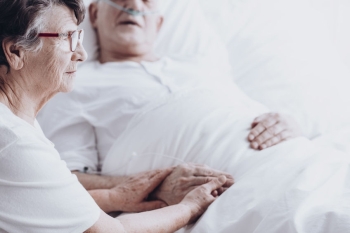
Death of a Spouse: few events in life are as painful as the death of a spouse. Half of all married couples will experience this loss at some point in their lives (ie become a widow / widower). You may sometimes feel like you will not have the energy or desire to survive, much less try to heal. Grief therapy can help.
With the death of your life’s companion, you may feel uncertain and confused, like a part of you is missing. When you experience the death of someone you love, live with, and depend on, feeling disoriented is natural. Mourning is the open expression of your thoughts and feelings regarding the death of your spouse, and is an essential part of healthy healing.
No one else had the same relationship you had with your spouse. Your experience as a widow / widower will also be influenced by the circumstances surrounding the death, other losses you have experienced, your emotional support system and your cultural and religious background. Because of this, you will grieve in your own way. Don’t try to compare your experience with that of others about just how long your grief should last. Take a one-day-at-a-time approach that allows you to grieve at your own pace. If you are unsure about the pace of grief, consider grief therapy.
You may feel confused, disoriented, fearful, guilty, relieved and angry all at the same time! As crazy as some of these emotions may seem, they are normal and healthy. One of the best actions to take is to find a support system of caring friends and relatives who will provide the understanding you need. Find out if there is a support group in your area that you might want to attend. There is no substitute for learning from others who have experienced the death of their spouse. Avoid individuals who are disapproving or who try to tell you how you should grieve. Seek out those people who encourage you to be yourself and acknowledge your feelings— both happy and sad.
It’s not unusual to feel worn out and fatigued when you have lost a loved one. You may find your ability to think clearly and make decisions greatly impaired. You may even find that a low energy level slows you down a bit. Pay attention to what your body and mind are telling you. Get daily rest. Eat balanced meals, and don’t feel guilty about lightening your schedule as much as possible.
You will probably find that some days make you miss your spouse more than others. Days and events that held special meaning for you as a couple, such as your birthday, your spouse’s birthday, your wedding anniversary or holidays, may be more difficult to go through by yourself. These events make the absence of a loved one much more noticeable. If you belong to a support group, this would be a good time to have a special friend stay in close contact with you during these naturally difficult days. If you feel all alone, grief therapy can help.
Memories are one of the best legacies a spouse leaves when they die. Treasure the memories that comfort you, and explore those that may trouble you. Even difficult memories can help us to heal. Share memories with those who listen well and support you. Recognize that your memories may make you laugh or cry. In either case, they are a lasting part of the relationship you had with your spouse. You may also find comfort in finding a way to commemorate your husband or wife’s life. It’s important to remember that healing doesn’t mean forgetting
To restore your capacity to love, you must grieve when your spouse dies. We don’t actually get over grief; we learn to live with it, just as we choose to go on living. Give yourself time and compassion, just as you would a friend.
Center for Growth / Grief Therapy in Philadelphia, PA, Ocean City NJ, Mechanicsville, VA, Santa Fe, NM, To speak to a grief therapist call our grief therapists at 2159225683x100



















